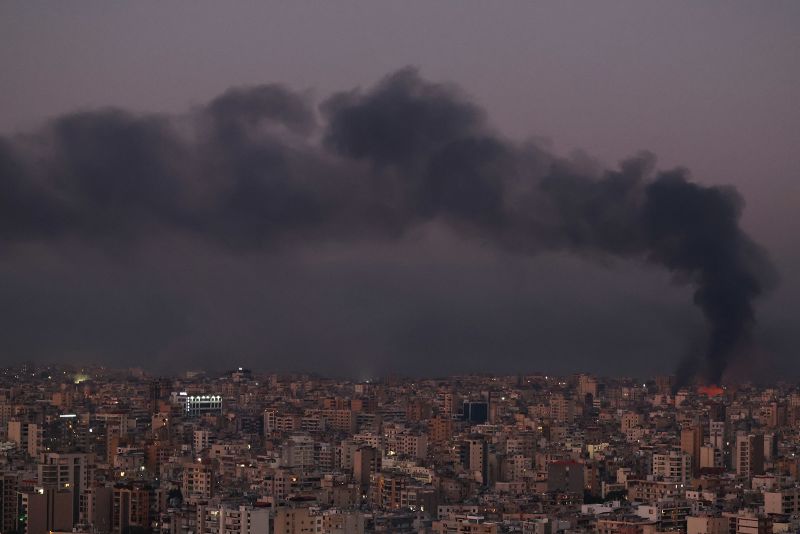
Israeli Strikes Target Hezbollah Leader Hassan Nasrallah in Beirut, Casualties and Displacement Continue
The situation in Beirut has intensified dramatically following Israeli airstrikes targeting Hezbollah's leadership, specifically its leader, Hassan Nasrallah. According to Israeli officials, Nasrallah was the primary target in a series of strikes on Hezbollah's headquarters in the southern part of Lebanon’s capital. The airstrikes have led to a considerable amount of destruction, flattening buildings in densely populated areas and causing numerous casualties. Lebanon’s health ministry reports at least six deaths, with many more injured. The damage also resulted in the displacement of over 100,000 people, though officials warn the actual number may be far higher, possibly exceeding half a million internally displaced residents.
These strikes are part of the broader conflict between Israel and Hezbollah, an Iran-backed militant group that has been involved in multiple escalations since the beginning of the Israel-Hamas war. While Israel claims it was targeting Hezbollah’s military capabilities, including missile storage and production sites, Hezbollah has denied storing weapons in civilian areas. Regardless, the scale of the attacks has been immense, with reports suggesting that powerful 2,000-pound bombs were used, creating large craters and reducing entire buildings to rubble.
Also Read:- Western Bulldogs Triumph Over Sydney Swans in a Gritty AFLW Clash
- Earth Will Have a Temporary 'Mini Moon' for Two Months
Adding to the complexity, the United States was reportedly not notified of the strikes until they were already underway, leading to frustrations within the Biden administration. U.S. Defense Secretary Lloyd Austin has expressed deep concerns about the potential for this conflict to spiral into a full-scale war between Israel and Hezbollah, which could have devastating consequences for both countries and the wider region.
The strikes have triggered retaliatory actions from Hezbollah, with missiles and drones launched toward northern Israel in response. As the situation escalates, Israeli Prime Minister Benjamin Netanyahu has vowed to continue military operations against Hezbollah, despite growing international pressure for a ceasefire. His return from the United Nations General Assembly was marked by a defiant stance, promising that there is "no place in Iran" beyond the reach of Israel’s military capabilities.
The people of Beirut, especially in the heavily hit southern suburbs, face a grim reality. Thousands have fled their homes, some with nothing more than the clothes on their backs, seeking shelter in other parts of the city. The Lebanese government has called on the international community to intervene and halt the ongoing attacks, but for now, the conflict shows no signs of slowing down. Amid this uncertainty, civilians continue to suffer, with fears mounting over what the next phase of the war will bring.
Read More:

0 Comments